Now that I’m about halfway through the third year of my PhD program — which means, theoretically, I’m about halfway done, though in reality who knows — I thought I’d take a moment to reflect on why I’m choosing to do this in the first place.
This is apropos of research I’ve been doing on Jack Spicer, for his Beowulf translation, soon to be published (in part) with an introduction by me and a colleague. Turns out that his relationship to his own intellectual background was a great deal more troubled, troubling, and complex than anyone had previously known (though I’ve no doubt that Kevin Killian, who helped organize Spicer’s archive at Berkeley and alerted me to the translation in the first place, has a pretty good idea about this).
There are, of course, numerous hints of this trouble in Spicer’s poetry. In a letter from Admonitions, he writes, “I learned this from the English Department (and from the English Department of the spirit—that great quagmire that lurks at the bottom of all of us) and it ruined 10 years of my poetry.” In the poem “Dover Beach,” from Lament for the Makers, he writes,
-
Words-
worth
Nods
He heap good
Gray poet
English department in his skull.
In the “Explanatory Note” to Homage to Creeley, he writes, “He wanted an English professor—someone he could feel superior to, as a ghost. He wanted to eliminate all traces of the poetry.” The English department and its professors and rules were something to be gotten over—but at the same time, Spicer seemed to keenly desire and value the knowledge he’d gotten therefrom, even at times figuring it as a kind of watchword at the gates of poetry.
Robert Duncan picks up on this in a never-published Bibliography for Jack Spicer, which (because it’s not published) I can’t quote from directly, and so will have to paraphrase. Duncan notices that in the Vancouver Lectures Spicer is dismissive of Creeley, e.g., for saying he follows the dictation of language, which Spicer, “speaking as a professional linguist,” thinks is nonsense. Duncan also parses the chain of poets mentioned in “Dover Beach,” which includes Pound, Browning, Duncan himself, and the aforementioned Wordsworth, and concludes that the missing poet in the chain is none other than Spicer — he must be the one with “heap good / English Department in his skull.”
It’s a valid insight.
Which brings me back to the question: why do this in the first place?
The first answer again goes back to Spicer. Again, in Vancouver, he gives James Alexander and his “A Jackrabbit Poem” as an example of why you don’t need to “know anything” (about form) to write a great poem. But he then adds, “Unfortunately, the kid can’t spell.” And he goes on to mention Ebbe Borregard as someone who came to sonnets after doing “all sorts of wild stuff” and using that freedom to work with the form. Even here, the attitude seems ambivalent — both fascinated and admiring, and dismissive.
The fact of the matter is that Spicer was a serious scholar who studied Old English and Old Norse at the PhD level. Things didn’t turn out as he’d hoped, due to his famous refusal to sign the UC loyalty oath in 1950 — which is probably for the best, for his poetry, if not for his life and livelihood. But I believe it’s necessary to keep this in mind when reading his poetry. It’s part of what deepens it, makes it interesting, makes it last.
That would be the first, and biggest, reason for continuing on this path. I simply don’t believe it’s possible to understand everything there is to understand about poetry at Spicer’s level without some background in the knowledge base that he’s pulling from.*
*And here, someone is going to point out, Why do you need to understand everything? Why do you think you can? Fair enough.
The problem, as anyone who’s attended graduate school can attest, is that it’s so damn time-consuming that you begin to feel as though it’s sucking the life out of you in big, healthy gulps. There are just so many other things I’d like to be doing. Primary among them: writing poems, which I too infrequently have the time to do. I’d like to be playing my guitar. I’d like to be taking long walks with my wife (also in school) and my dog. I’d like to be getting away for the weekend. All of this is difficult.
But you learn to live with it, and to take nourishment where and when it comes. And look forward to those little oases of time that come with the breaks and that long-distant moment when it’ll all be over…
The deeper issue is a far more insidious one, and I think it circles back round to Spicer’s difficulties. There’s a clue to it in this book I’ve been reading by David Crystal, The Stories of English. He writes:
- It is obvious that anyone who lacks the ability to express English formally, with control and precision, is at a serious disadvantage in modern society. But the opposite also applies: anyone who lacks the ability to handle the informal range of English usage is seriously disadvantaged, too.
Crystal is mostly talking about non-native speakers. But the fact is that students of any specialized field (this is probably also true, e.g., of lawyers, doctors, accountants…) run the risk of becoming cut off linguistically from their peers outside the academy, sealed off in a language of jargon and theory-speak, which is mostly a dead language that produces dead conversations.
In a different part of his Bibliography, Duncan notes, with characteristic brutal honesty, that he believes Spicer pursued his education out of a desire to secure a livelihood, while their mutual friend and poet Robin Blaser (who shared many courses with Spicer and wound up with a library science degree) pursued his to secure a certain status.
I can’t say with any degree of certainty what my or many of my colleagues’ motivations are, but it’s probably a mixture of both desires, in most cases. And the bottom line is that, smart as my colleagues are — and they are truly some of the smartest people I’ve ever met — there is a constant danger that one falls into this language trap, this morass of jargon and litspeak, and that it intertwines with one’s personality in inextricable ways, and turns one into that certain creature that Spicer both dreaded and admired in himself — the academic.
There’s nothing particularly wrong with being an academic — that’s why I’m here! — as long as that’s not all I am, all I become. Again, I go back to Spicer: “I repeat, the perfect poem has an infinitely small vocabulary.” You simply don’t see a lot of 50-cent words or intellectual terminology in Spicer’s poetry. He worked hard to keep it out. To make poetry that’s difficult and challenging, with a language that is in most cases fairly straightforward.
… This is the sort of path that I cling to, though at times it’s tough to keep sight of. Difficult language is sometimes necessary to discuss complicated concepts. Our seminars and discussions are full of them. But at other times, the jargon is simply a signification of difficulty, not difficulty itself. And I realize I’ve spent most of this post giving reasons not to pursue a PhD, rather than celebrating why I’m here. Right now the path is the reason; it’s difficult in this jungle to see the way through to a job and a different kind of life, especially given the fiscal realities within the humanities.
Well — it’s November. Get back to me in June, when this year’s over, and I’ve hopefully passed my oral exams and am feeling closer to those goals and it’s warm out and everything’s happy and bright.


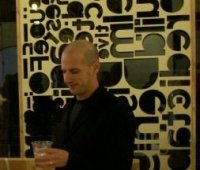

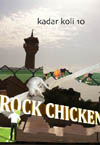


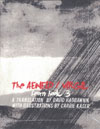
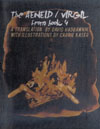


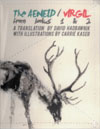

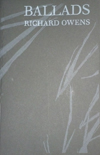


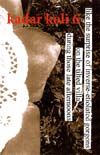
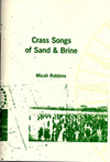

When you occassionally check in with why you are doing things and the reason why certain practices persist (i.e., using litcrit jargon), then I think you are keeping perspective and not the sort of person who will get remade in the image of their program.
Focusing deeply on a subject and discipline and practicing/participating (in) it–is in itself a way to learn how to look at anything deeply. And regardless of how it pays off in the future, you will always have that experience.
Tremendous post, David. I can’t disagree in the main with what you say. And the there is a gesture of personal disclosure here that is clarifying, even moving.
Wanted to ask this: Is it possible that less formally academic groupings (I’m thinking about the growing Free School movement) might provide collective zones of contact and energy that could match the intellectual energy and inspiration of the university at these more specialized levels you are talking about? Granted, not that these would be completely autonomous of the academic sphere (libraries!), but what’s happening in some places with this Free School thing is interesting. And granted, also, this may be a passing development, but just wondering how you’d see that.
Kent
sarah–
thanks, tho i wonder sometimes… hard to be objective in the middle of it.
kent–
again, thanks. i think that with the enormous economic crunch on the humanities, there’s going to be a glut of scholars as well as people who want to learn but can’t afford to pay tuition. so yes, we’ll see more things like Black Mountain or the early days of New College — not sure what Free School is, but something along those lines? and that might be a good thing, even a wonderful thing that will lead to little renaissances of knowledge and creativity.
i mean duncan basically used the university that way — what goes unstated in his critiique of blaser and spicer is that he himself never bothered to take a degree — then again, he could AFFORD to do that. it would be nice to establish something like the working man’s schools in britain, coming out of cultural studies collectives of the 50s and 60s, but i keep wondering how it’s going to make sense financially. always a question of time / money…
Interesting to read this after our emails last week- it’s a very interesting commentary on what I’m experiencing from the opposite end– namely, working, running a business, raising kids, etc. and therefore finding it very difficult to connect with others.
One of the things that bothered me about grad school (I got through a year of an MA in Comp Lit) was that I was, of course, largely forced to do things I didn’t want to do, in order to check off the list of requirements. When does one get to that magical place when you can get payed to read and write what one wants to? LOL!!! Seriously though, the publish or perish mentality, the list of requ.’s, etc. I was always looking for a community, and was never able to find one.
And yet, having left academia, it’s terribly, terribly difficult to find others who really want to read things acutely, pick them apart, create critically thinking art together, etc. Even when I find the time, others are always very put off by that approach, which I always found very invigorating (artistically and intellectually). I don’t know how many times I’ve read a poem by another poet that I really liked, and therefore paid it the compliment of critically viewing it, finding how it worked, taking it apart a bit, showing how things might be better written, engaging some of the themes in broader intellectual/critical conversations, etc. and THEN have it be a total turn off to that person. They don’t really reply anymore, etc.
So, there are issues on both sides of the fence. It’s as if all those who really want to have their own artistic output approached critically (or who want to approach mine in that way, for that matter, which I would love to have done) leave “normal” life and enter academia. Thus, it is often a cultural wasteland out here.
People are happy to share, but no one wants to engage.
Whereas, from your post, and my conversations with others I know in PhD’s, etc. once you enter a program it’s terribly difficult to simply __produce__. Everything starts revolving, solely, around the life of the mind. Or the theoretical work seems to seep into everything else, etc.
It’s an odd equation that I can’t seem to find the right answer for. Although, yes, this “Free School” thing of which Kent speaks of sound intriguing, at the least.
I did feel like Diane DiPrima had something going there, but then, I often felt like many of the other students weren’t really engaging in the reading she gave. Not in the way I would have liked. And probably for legit time reasons, you know? But that doesn’t make it work any better….